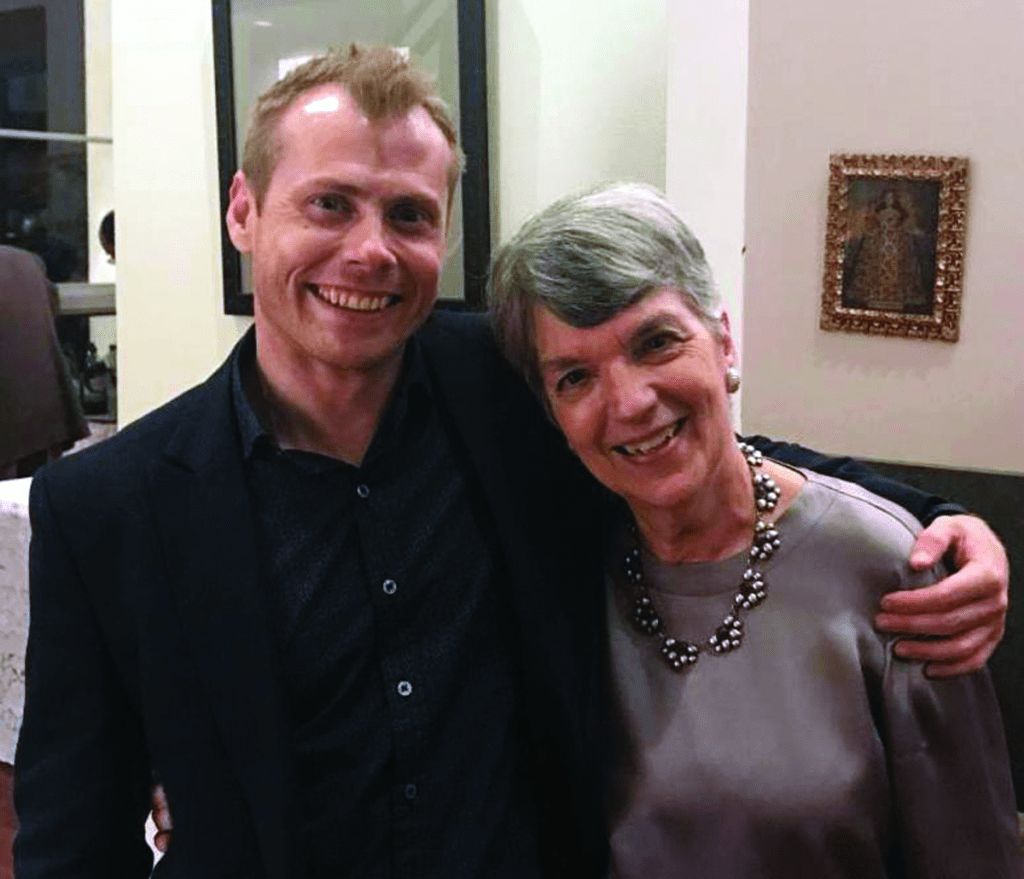Tim Nelson’s Vision for the In Series
By • January 25, 2019 0 429

The just-ended production of “From U Street to the Cotton Club” at the Source Theatre marks the middle of the In Series’ first season under Artistic Director Timothy Nelson, who has taken over following the retirement, after 36 years, of founder Carla Hubner.
“I am gratified and excited to have the opportunity at the In Series,” Nelson says. “It’s unique in Washington, and in the country, in its approach to both theater and music, and finding ways to put them together.”
For the 2018-19 season, Nelson and Hubner put together an array of eclectic offerings that speak as a package to the traditions contained in the history of the In Series, the here and now and the future.
Nelson wants to connect “music, opera and performance to the community in direct ways.” “That’s the way people will feel a part of what they’re experiencing,” he says. That means different venues, different genres, different kinds of music, creating events that echo in the lives of the audience.
Nelson is a native of West Virginia, where, growing up, he recounts: “You recognize that you’re a little different, not necessarily in the social mainstream. Being gay, you’re drawn to creating your own visions inside your head, creating worlds you feel that are your own.”
In terms of his career as a director, being chosen to helm the In Series marks a kind of homecoming. He’s a graduate of Johns Hopkins University’s Peabody Institute and spent 10 years as artistic director of the now defunct American Opera Theater in Baltimore. Then, in Europe, he directed, headed institutions and traveled, exploring his interests and creating stirring productions of rarely produced works, drawing praise as a force in the future of classical music and opera.
In Baltimore, he directed works that are resonant of the intriguing aspects of the musical road less taken, staging American premieres of baroque operas “La Didone” and “David et Jonathas” at the Brooklyn Academy of Music and a “circus” production of Handel’s “Acis and Galatea” that toured nationally.
Among many European productions, Nelson directed “Les Pêcheurs de Perles” for Nationale Riesopera in the Netherlands, “The Lighthouse” for the Armel Opera Festival in Budapest and “Giulio Cesare” for Opera London. He was artistic director of the Netherlands Opera Studio and the Accademia Europea dell’Opera and a regular guest director at the Centre for Opera Studies in Italy.
The credits — and the list is large, luminous — are rich with classical themes and an adventuresome explorer’s heart, taste and spirit. That trait can be seen in this season’s offering at the In Series, ambitiously and bravely titled “R(E)VOLUTION!” It began with “Viva V.E.R.D.I. – The Promised End,” an exploration of Verdi’s music putting Shakespeare’s “King Lear” next to Verdi’s “Requiem” and imagining Verdi’s death, his own “Lear” unfinished. It was followed by another mashup, of Mozart “The Marriage of Figaro” with poet T. S. Eliot’s “Four Quartets.” Coming up in March, there’s an adaptation of Ricardo de la Vega and Tomás Bretón’s
zarzuela “La Verbena de la Paloma,” set on both sides of the seaside border-wall between Tijuana and San Diego, at GALA Hispanic Theatre. The season ends in June at the Atlas Performing Arts Center with a return to a classical theme and subject, Handel’s “Serse,” with a new narration crafted from the Sufi poetry of Rumi and featuring the debut of theIn Series orchestra Innovātiō, performing onperiod instruments.
It’s a season that seems at once classic — and classical — as well as brand new and, well, revolutionary.

